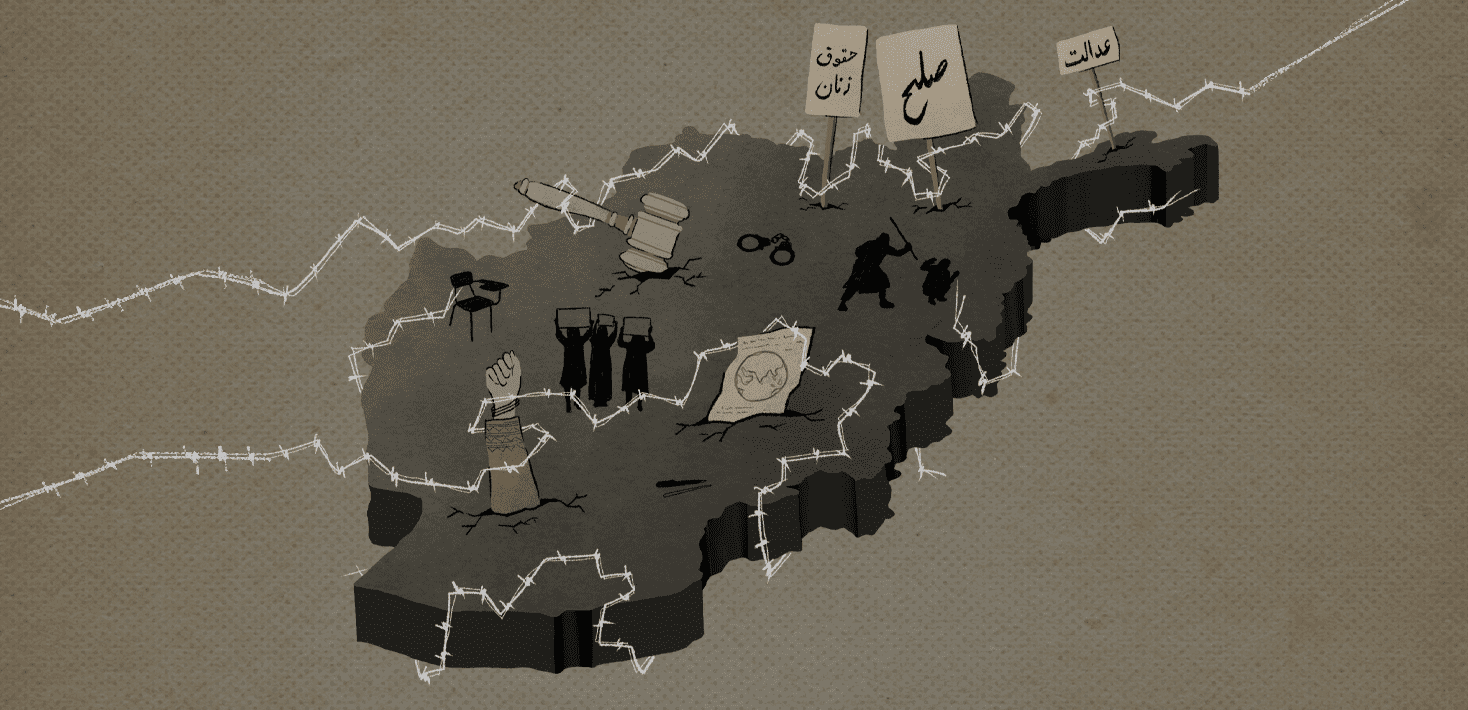The Afghan community is struggling with three years of unresolved frustration as the Taliban de facto authorities commit human rights violations and crimes under international law against the Afghan people, especially women and girls, with absolute impunity, said Amnesty International today.
In a wide-ranging consultation with more than 150 stakeholders, including Afghan human rights defenders, members of academia, women protestors and activists, young people, civil society representatives and journalists, Amnesty International has documented the Afghan community’s frustrations with the international community’s response and fears and suggestions for the future.
“We spoke with people representing a cross-section of Afghan society throughout the world who overwhelmingly believe that the international community has failed the people of Afghanistan. Not only have they failed to hold the Taliban accountable for the crimes and human rights violations, they have also failed to come up with a strategic direction to prevent any further harm,” said Samira Hamidi, Regional Campaigner for South Asia at Amnesty International.
“Three years on, the absolute absence of any concrete measures in addressing the human rights catastrophe in Afghanistan is a source of shame for the world.”
The consultations were conducted with individuals in seventeen provinces across Afghanistan and with those in exile in ten countries from across the world including, US, UK, Germany, France, Belgium, Spain, Switzerland, Italy, Canada, and Pakistan.
Women and Girls’ Rights
More than twenty Afghan women human rights defenders (WHRD) living in 21 provinces in Afghanistan told Amnesty International that they have lost agency in every aspect of their lives. Women we spoke with used to be employed in diverse fields including law, politics, journalism, education and sport. After three years under Taliban rule, they all echoed the feeling of being ‘no-one’ with limited opportunities for employment and economic or cultural contribution.
Razia, a WHRD from Kunduz province in Afghanistan said: “the women who have lost their agency, jobs and economic status are told that they deserve it, and that the Taliban return is a positive step to shut [down] those who were preaching adultery in the name of human rights and women’s rights.”
The Taliban have dismissed allegations of gender persecution by claiming they are complying with Shariah (Islamic law) and ‘Afghan culture.’ All restrictive and repressive decrees and policies that were ostensibly introduced as temporary measures to ensure the safety of the people especially women and girls at the beginning of their rule are still in place after three years.
“We were told the Taliban have changed. We were told not [to] spoil the peace efforts. We were told the world will stand for us. [yet] today we are living our miseries alone,” said Nazifa, a teacher in Mazar-e- sharif province of Afghanistan.
Justice and Accountability
The legal and formal justice system in Afghanistan collapsed after the Taliban’s return to power and, in November 2022, the Taliban Supreme leader issued an obligatory order for full implementation of Shariah law in Afghanistan.
“The Taliban announced that there is no need for the participation of lawyers during trials. They do not believe in justice systems but rely heavily on their interpretation of Shariah law led by religious scholars from Madrasas (Islamic schools) with no formal legal education,” said Ahmad Ahmadi, a former lawyer now living in exile in Europe.
Various civil society representatives spoke about the return of corporal punishment in Afghanistan, including public flogging, public execution, the chopping off of limbs, stoning, and other forms of ill-treatment and torture that violate international law. The absence of fair trials, or access to legal remedy remains under-reported.
Shrinking Civic Space
Afghanistan now has a dwindling civil society where human rights defenders, including women protestors, grassroots organizations, journalists, and political activists are perceived as enemies by the Taliban. Those who protest are subjected to enforced disappearances, arbitrary detentions, imprisonment, torture and other ill-treatment. Many have been forced to flee the country fearing reprisals, leaving behind families and jobs. Hundreds of them remain stuck in Iran, Pakistan and Turkey, where they are facing legal and financial challenges and are even exposed to forced deportation.
The Afghan human rights community shared that they face exclusion not only by the Taliban but also by the international community. “Those of us in Afghanistan are not invited in important discussions as its deemed ‘too risky’. Those of us in exile are excluded as we don’t live in Afghanistan and therefore deemed not ‘legitimate’,” said Tabasoom Noori, a women’s rights activist living in exile in the United States.
International Support
The human rights defenders who spoke to Amnesty International felt that the gravity of the human rights crisis in Afghanistan is undermined partly through the Taliban’s rhetoric and propaganda of Afghanistan now being ‘safer’ with a growing economy where citizens are accorded respect and dignity in accordance with Shariah (Islamic law) and culture.
In reality, the Taliban have created an environment of fear and absolute control. “The same group who were blowing themselves up and killing civilians and security forces don’t do it any more (as they are in power), so of course [Afghanistan] will be safe,” said Zarifa, a women human rights defender living in exile in the United States.
“After three years, the frustration in the Afghan community is palpable. Innumerable statements and meetings later, the world is still wringing its hands as the Taliban continue violating human rights and undoing twenty years of hard work in every sphere of public and private life.
“There is a need for all actors working on Afghanistan to coordinate, find safe and creative platforms to debate and engage in discussion to find effective long-term solutions. This is can also be made possible when they have avenues, resources and skills for it. The international community should commit to support these steps, respect the multitude of voices from the community and refrain from unprincipled engagement with the Taliban that would only prove detrimental to the collective efforts. The time for coordinated action is now,” said Samira Hamidi.
CONTACT: [email protected]

